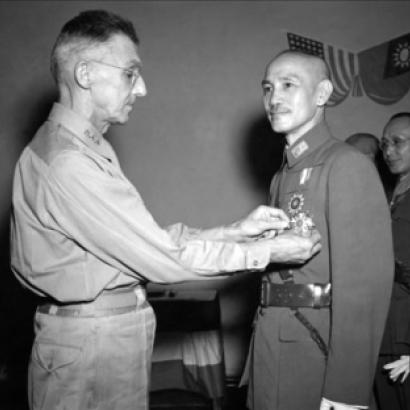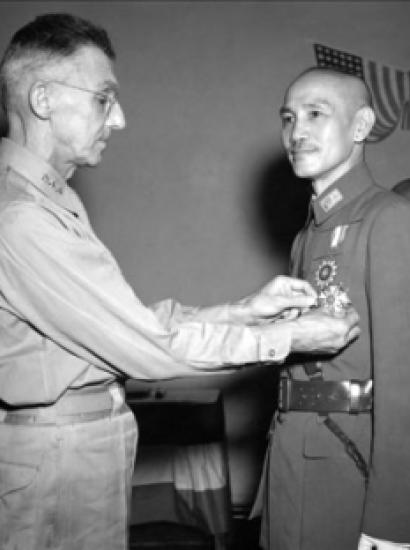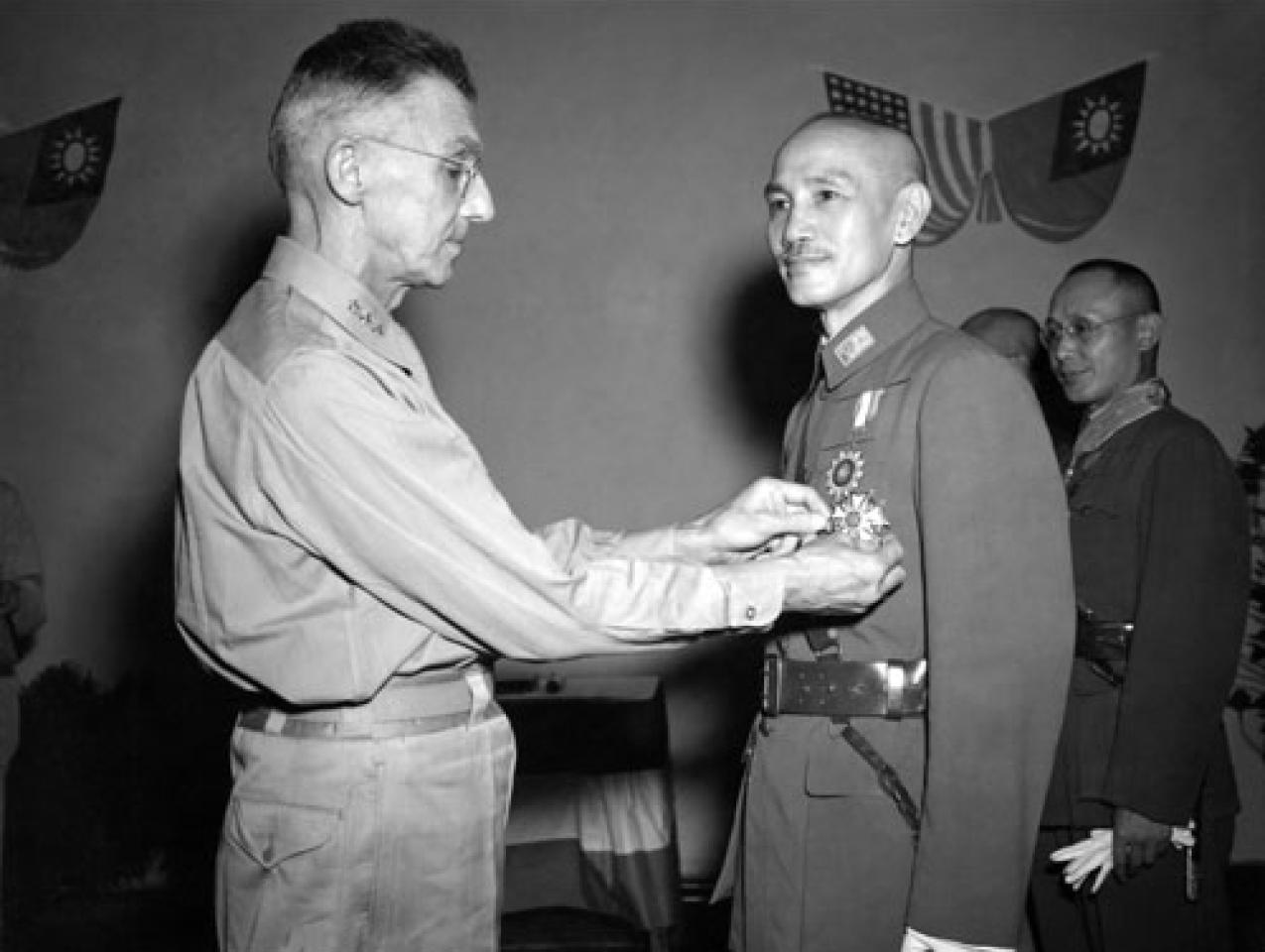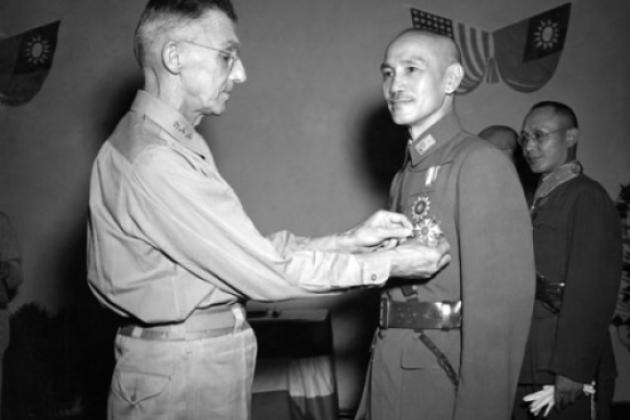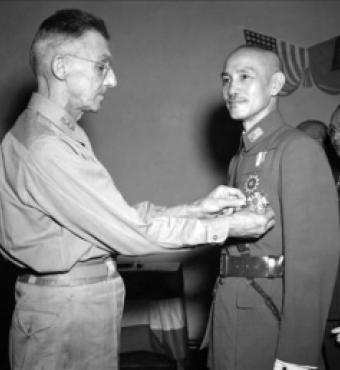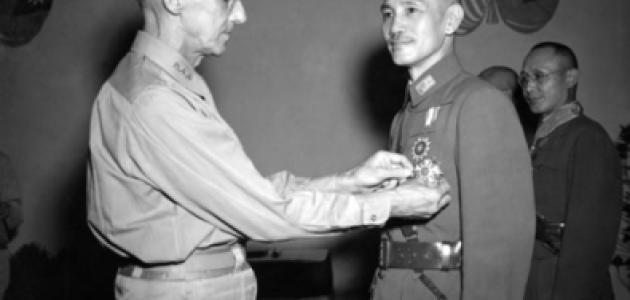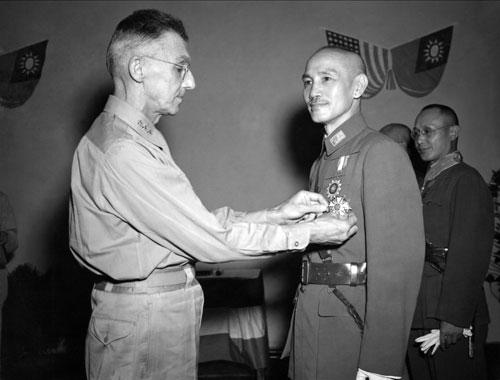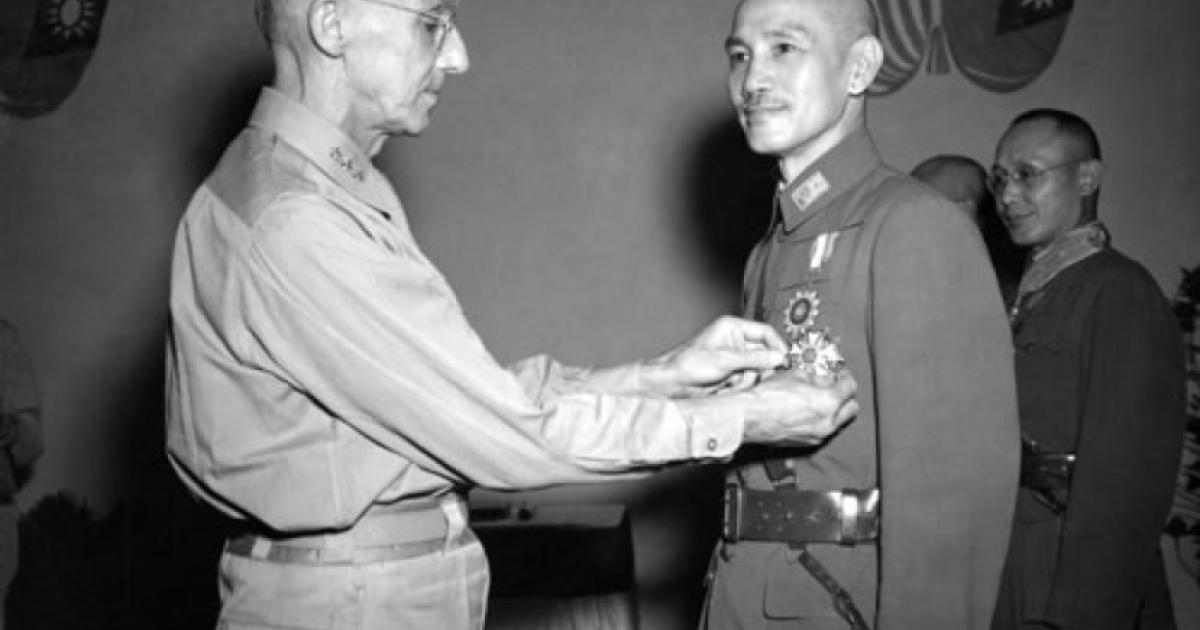- World
- Contemporary
- International Affairs
- US Foreign Policy
- History
Chiang Kai-shek, leading the Republic of China during the tumultuous 1930s and 1940s, defied the conventional adage that weak nations have no diplomacy. As illuminated by the Chiang diaries housed at the Hoover Institution, Chiang bargained with the world’s great powers from a position of weakness and achieved some remarkable objectives.
The recently released diaries, covering the years 1917 to 1945, show a diplomatic side of the military leader that is rarely seen in Chinese or Western scholarship. Chiang became China’s leader in 1928, after his campaigns against warlords earlier in the decade; in September 1931—with the Japanese having just seized Manchuria—the diaries find him rebuking himself for not having paid attention also to foreign relations. “I have very much neglected diplomacy because I have been preoccupied with resolving domestic conflicts,” he wrote (Chiang Kai-shek Diaries, hereafter CKSD, September 20, 1931).
Two years later, he crystallized his thinking on how to manage China’s relations with four great powers: Japan, the Soviet Union, Britain, and America:
Japan is feuding with us but also fears us. . . . Red Russia is our only enemy. . . . Britain and America want to use us to restrain Japan and Russia, but they have no territorial ambitions; in general, they can be considered friendly nations. . . . With friendly nations, we reciprocate with goodwill; with feuding nations, we make compromises; as for an enemy nation . . . we have to stand up to it. (CKSD, June 20, 1933)
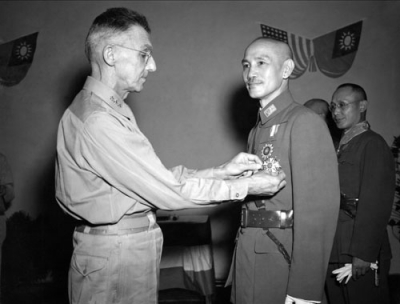
During the next twelve years, until the end of World War II, Chiang followed these guidelines in search of two objectives: to recover Chinese lands grabbed by foreign powers and to terminate the “unequal treaties” that granted foreign powers concessions in Chinese ports and the right to extraterritoriality in China. Meanwhile, Chiang presided over an impoverished and divided country, with the warlords paying him only nominal allegiance and the communists posing a determined military challenge.
A COMPLICATED GAME
It is against this background that Chiang engaged in multifront negotiations with the four targeted nations:
Japan. Deeply conscious of his forces’ military inferiority to those of Japan, Chiang tried to dissuade Japan from further encroaching on Chinese territory by seizing on Japan’s fear of Russia. In 1904–05, Russia lost a war to Japan over the first Manchurian crisis. Now, as Japan’s occupation of Manchuria directly threatened the security of Siberia, Chiang wrote in April 1933 that he believed that the Soviet Union would sooner or later go to war with Japan to avenge the loss. He informed Japan, through his emissaries and Japanese diplomats, that both China and Japan opposed the spread of communism under the aegis of the Soviet Union; he implicitly expressed sympathy toward Japan in case of war. In return for his favor, he asked Japan to acknowledge Chinese sovereignty over Manchuria and to evacuate its forces from other Chinese territories it had occupied.
“With friendly nations, we reciprocate with goodwill,” Chiang wrote in his diary. “With feuding nations, we make compromises; as for an enemy nation . . . we have to stand up to it.”
Japan would not yield on the territorial issue, but it asked Chiang to sign an agreement to establish an anticommunist common front. It demanded that Chiang recognize Manchukuo—the Japanese-sponsored puppet state in Manchuria—and to acknowledge Japan’s special interests in north China.
Chiang refused to consider such an agreement and adamantly rejected other Japanese demands, which, he believed, “would not only lead to Japan’s control of north China but also eventually make all of China a second Manchukuo” (CKSD, July 31, 1937). He hoped to “shatter Japan’s dream” of conquering China by evincing goodwill to the Soviet Union through a nonaggression treaty that would “so antagonize Japan that it would make further inroads in north China . . . but it might not be able to occupy the whole country. Accepting the lesser of the two evils, I have made up my mind on this matter.”
The Soviet Union. Chiang understood that the Soviets’ dominant concern in the 1930s was how to prevent a two-front war: one with Japan and the other with Germany. As previously noted, he regarded another Russo- Japanese war as inevitable. And, six months before Germany’s surprise invasion of the Soviet Union in June 1941, he had expressed in his diary the opinion that a war between those two nations was equally unavoidable. He thus believed in the late 1930s that a Chinese-Soviet nonaggression treaty would be highly valuable to the communist power.
In 1933, Chiang implicitly expressed sympathy toward Japan in case of another Russo-Japanese war. By 1937, he was signing a nonaggression treaty with the Soviet Union.
In August 1937, Chiang signed such a treaty with the Soviets while asking, as a quid pro quo, that Moscow provide military assistance to China in the full-scale Chinese-Japanese war that had just begun. The Soviet Union agreed, and its “warplanes arrived in Gansu province” in September (CKSD, September 25, 1937), followed by other weapons and financial assistance.
But the Soviet Union was actively engaged in multifront negotiations of its own. In August 1939, it signed a nonaggression treaty with Germany; in April 1941, it concluded a treaty of neutrality with Japan. And in February 1945, it reached an agreement with Britain and the United States at Yalta whereby the latter two powers pledged to pressure Chiang to restore the privileges Russia had enjoyed in Manchuria before the 1904–05 war, in return for a Soviet promise to attack Japan. As it happened, Chiang conceded to the Soviet demand on Manchuria, allowing Moscow to resume control of two major seaports and the railroad system.
Britain and the United States. From 1937 to 1940, Chiang predicted several times that Japan, owing to its irreconcilable conflicts with Britain and the United States in Asia and the Pacific, “would definitely risk a war with Britain and America, hoping to win by luck” (CKSD, December 13 and 17, 1937; December 18, 1940). In 1942, when the Japanese army occupied Burma, it threatened the security of British-ruled India as well as southern China. Chiang quickly reached understandings with the British and the Americans for coordinated military operations against the Japanese in the former British colony. He mounted an offensive in northern Burma with an expeditionary army, expecting a British and American naval assault on southern Burma. His move was intended to thwart a Japanese advance to India and southern China, to multinationalize the Chinese- Japanese war so that China would not have to fight Japan alone, and to enhance China’s international standing.
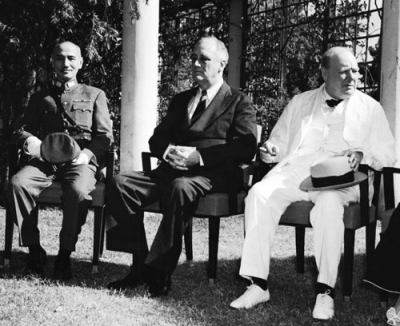
Chiang’s negotiations with Britain and America did not bear substantial fruit until 1943. By then, the joint Burma campaign had started; it suffered initial setbacks before finally succeeding. In January 1943, Chiang achieved his decade-long goal of seeing Britain and America abolish the “unequal treaties” that let foreign powers dominate China. In November, along with Winston Churchill and Franklin D. Roosevelt, he joined the Cairo conference, which restored to China the lands it had lost to Japan: Manchuria, Taiwan, and Penghu. The conference also affirmed China as one of the four great powers of the world. Chiang expressed great satisfaction at the conference’s outcome:
This was the first time I participated on an international stage. Our political accomplishment is of foremost importance, military accomplishment the second, and economic accomplishment the next. . . . The results were beyond my expectations. (CKSD, November 28, 1943)
Much of what happened to Chiang in Cairo was the result of earlier negotiations between China and the United States in Washington. Indeed, it was owing to Roosevelt’s goodwill that Chiang could reap such benefits from the Cairo conference.
Chiang predicted that Japan “would definitely risk a war with Britain and America, hoping to win by luck.”
Chinese-American relations were not, however, free from friction. Chiang’s dispute with Joseph Stilwell is too well documented to require elaboration. Yet Chiang’s diaries provide fresh insights into the dispute, over which Chiang agonized for three months after he received a letter from President Roosevelt demanding that he turn over Chinese forces to Stilwell’s command. Chiang wrote in the summer of 1944 that he “trembled” at each follow-up letter from Roosevelt and seriously considered resigning as China’s leader—a response he believed that Roosevelt would not have expected. He deliberated on ten possible consequences of his resignation, among which were the demoralization of his Central Army and the Japanese army’s sweep of China-controlled territory.
Chiang came away from his deliberations having decided to reject Roosevelt’s demands, judging that “America faces the necessity of depending on China to fight Japan and to restrain Russia in the future after defeating Japan. America cannot afford to lose China” (CKSD, August 31, 1944). He notified Roosevelt of his decision in October, readying himself for the consequences. But Roosevelt soon relented and recalled Stilwell to the United States in the fall of 1944.
AN ASSESSMENT
By the end of the Second World War, in 1945, Chiang had accomplished most of the objectives he had set himself twelve years earlier. He had recovered the Chinese territories lost to Japan and succeeded in terminating the unequal treaties, and he had seen China become one of the four great powers. On the other hand, as he had feared, the Soviet Union had regained its imperialistic privileges in Manchuria—an event that all his diplomatic maneuvering and China’s victory in the eight-year war against Japan had failed to prevent.
Historians may recognize other factors in Chiang’s overall diplomatic success: Japanese military mistakes in the Pacific, America’s victory at sea, the advent of the atomic bomb, and the decline of the British Empire. Yet Chiang played the diplomatic game with skill. The China he led was by all counts a poor and intimidated nation, but he overcame his disadvantageous position in two ways. First, he endeavored to multinationalize the Chinese- Japanese conflict so he might not be defeated in a war he had previously believed was unwinnable. Second, he identified the needs or weaknesses of his targeted nations—the mutual fears of Japan and the USSR, the vulnerability of British India to Japanese invasion, and America’s desire to build China into a countervailing power against Japan and the Soviet Union— and exploited them to his advantage.
“Know yourself and know your opponent. You will always win.” This maxim by the ancient Chinese military theorist Sun Zi applies to diplomacy as well as to war. Viewed from this perspective, the Chiang diaries not only reveal matters of historical interest but also contribute to the study of the art of diplomacy.








